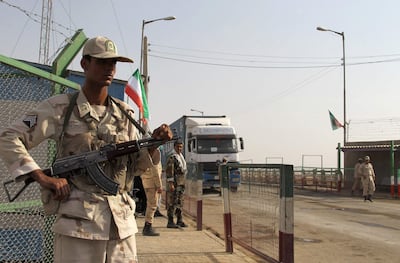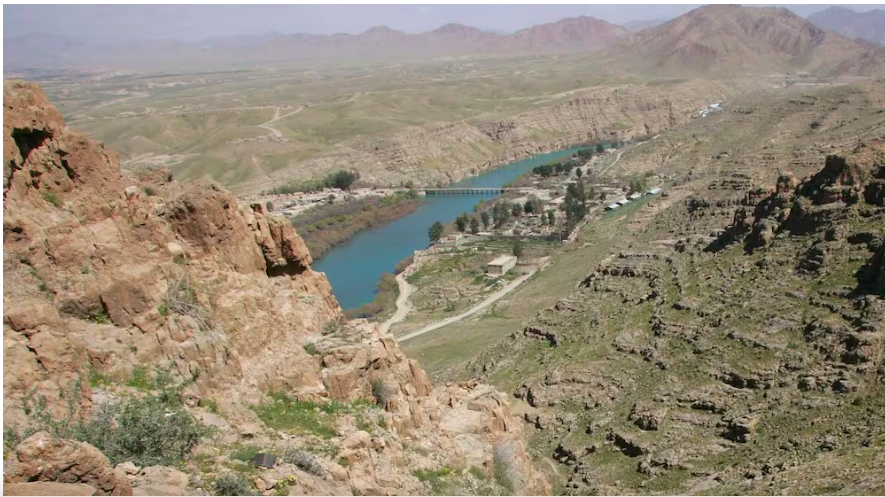The Taliban authorities in Afghanistan are facing mounting pressure from Iran after lethal clashes on the border between the two sides, which reportedly led to the deaths of two Iranian border guards and one Taliban fighter.
Experts tell The National a major source of tension is over the flow of Helmand river water from Afghanistan, even as both countries battle drought conditions.
Iran claimed it is receiving only about 4 per cent of the total amount agreed under a 1973 treaty. The deal required Afghanistan to provide Iran an annual average of 22 cubic metres of water per second, with an additional four cubic metres per second as goodwill.
The Taliban’s Ministry of Interior released a statement on Sunday, calling for dialogue and saying “looking for excuses for war are not in the interests of either side”.
The Iranian government has threatened action against the Taliban, who seized control of Afghanistan in August 2021, if they fail to release more water to Iran. President Ebrahim Raisi issued similar threats on Friday during a visit to the south-eastern province of Sistan-Balochistan.
“I warn the rulers of Afghanistan to immediately give the people their water rights. Take my words seriously now or don’t complain later,” he said.

One of the largest rivers in Afghanistan, the Helmand rises in the Hindu Kush mountains and stretches over 1,000km across the country before emptying into the Sistan basin in Iran. Despite the agreements, the river has been a subject of contention between the two countries on several occasions in the past few decades.
However, water management experts argue that Iranian authorities have failed to take into account the impact of climate change and prolonged droughts in the region.
Read full article on The National
